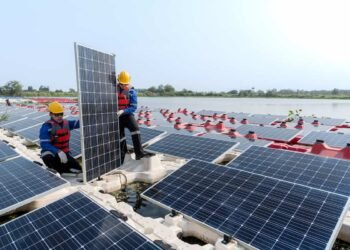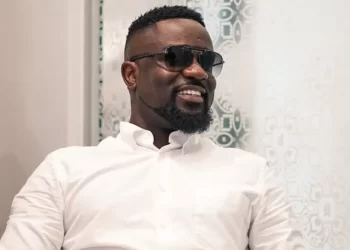France has announced more planned deliveries of its Caesar artillery system to Ukraine while accelerating weapons manufacturing as it seeks to avoid depleting its own military stocks while continuing to support efforts against Russia’s invasion.
Sebastien Lecornu, the French Defense Minister, said that Paris would send 50 precision-guided missiles a month to Kyiv to aid its fight against Russia’s invasion.
He also said that Caesar manufacturer, Nexter, had managed to halve the production time of the howitzer to 15 months.
“The logic of ceding materiel taken from the armies’ stocks is reaching its end,” Lecornu, said in an interview.
He added, “From now on, the solution is to directly connect French defense industries with the Ukrainian army.”
France also launched a drive to fund the delivery of 78 Caesar self-propelled 155 mm howitzers to Ukraine this year. Ukraine has already paid for six of them.
In Ukraine’s first purchase of French-made weapons since the start of the war, Lecornu said that Kyiv had bought six for €3m-€4m ($3.3m -$4.4m) each.
Ukraine currently has 49 Caesar self-propelled howitzers given by France and Denmark.
Moreover, Lecornu stated that France would also spend 50 million euros (US$ 54 million) from a fund it had created for Ukraine to buy 12 more which it would then send to Kyiv.
Lecornu said that increased supplies of shells for Ukraine are on their way, adding that from this month, France will supply 3,000 shells for 155 mm guns per month, up from 1,000 shells per month at the start of the war and 2,000 per month since last April.
“We need to switch to a logic of production, which makes it possible to connect the North American and European defence systems, and the Ukrainian army,” Lecornu said.
“It is an important shift that depends on our ability to go into a war economy which is a way of production, management of stocks, organisation of workload, to respond to meet the delivery delays requirements of a customer at war,” he added.
The Minister added that France is also seeking 280 million euros ($305 million) from other allies of Ukraine to pay for the 60 other Caesars.
“We want to share the bill and enable European countries to share the financial burden,” Lecornu said.
“In this phase of the war, we need endurance in our military aid for Kyiv,” Lecornu said. “Russia is betting that time is on its side.”
He said Russia, Iran and North Korea are scrutinizing the mettle of Ukraine’s partners.
“Our capacity to show endurance and reliability is being watched in Moscow, and Pyongyang or Tehran for that matter,” he said.
Zelenskyy Holds Phone Call With Macron
President of Ukraine, Volodymyr Zelenskyy had a phone call with President of the France, Emmanuel Macron.
Zelenskyy thanked Macron for the launch of the Artillery Coalition initiative and for France’s commitment to produce dozens of advanced CAESAR artillery systems and ammunition for Ukraine in 2024.
The parties discussed in detail the battlefield situation and Ukraine’s defense needs. In particular, the priorities for inclusion in the next military aid package from France while Zelenskyy emphasized the importance of further bolstering Ukraine’s air defense system.
The President of Ukraine also thanked for the active support of French business, which is investing and is willing to increase investments in Ukraine despite the war.
Moreover, Zelenskyy spoke about the start of preparations for the Global Peace Summit.
The leaders noted the importance of involving the widest possible range of countries in it.
The leaders also instructed political and military advisors to start preparing for the French President’s upcoming visit to Ukraine and to expedite negotiations on a bilateral agreement on security commitments within the Vilnius G7 Declaration.
Macron is scheduled to head to Ukraine in February to complete a deal under which Paris would deliver more sophisticated weaponry, including long-range cruise missiles, and provide long-term political, aid and reconstruction commitments.
READ ALSO: NDC Mourns the Passing of Former MP and Interior Minister, Mark Owen Woyongo



















